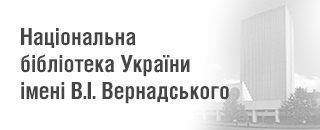MODERN PRINCIPLES OF THE FORMATION OF THE NATO ARMED FORCES AS A BASIS FOR ENSURING INTERNATIONAL SECURITY
DOI:
https://doi.org/10.31470/2786-6246-2024-9-6-17Keywords:
public administration, armed forces, NATO, NATO Armed Forces, NATO standards, training of military personnel, career development of military personnel, material equipment of training systems of NATO countriesAbstract
The article analyzes the modern principles of the formation of the NATO armed forces as a basis for ensuring international security. In Great Britain, there is a careful selection of personnel for the armed forces. Recruitment of the armed forces in Great Britain is carried out on a voluntary basis. The training of the officer corps is characterized by integrity and continuity. Considerable attention is paid to imparting command (leadership) skills to cadets (students), sports and participation in tactical exercises. In Great Britain, there is a principle of career development for officers. Its essence is that taking into account various personnel actions (rotation, appointment to positions, assignment of ranks, etc.) is carried out not on the basis of age indicators, but on the basis of the length of service (terms) of military service. In addition, about 30% of the personnel officers in the armed forces of Great Britain were trained in non-military training courses at civilian higher education institutions.
In units and units of the German armed forces, professional training consists of training and combat training. Personnel in the armed forces are carefully selected based on their education, skills and experience. Germany's officer training system is a series of stages of training in the officer school of the branches of the military, in one of the universities of the Bundeswehr, military training and direct service in the troops in various staff and command positions. In the German armed forces, psychological training is considered mandatory for servicemen of all branches of the military, which includes combat training, stress resistance, motivational factors for military service, conflict resolution, etc.
In France, there are military lycées that provide primary education. The officer training system has a multi-level education and permanent selection of personnel. In France, substantial material support for military personnel has been created, in particular, appropriate wages, allowances for special conditions of service, designed to compensate for risks, displacement and long-term stay abroad; assistance in buying or renting housing; assistance to family members in finding employment, assistance in rehabilitation after discharge from service, pension provision, etc.
References
Selection and Training in the British Army. en.wikipedia.org. Retrieved from http://en.wikipedia.org/wiki/Army_Training_Regiment [in English].
Defense Academy of the United Kingdom. Retrieved from http://www.da.mod.uk/ [in English].
Royal Military College Sandhurst. en.wikipedia.org. Retrieved from https://en.wikipedia.org/wiki/Royal_Military_College_Sandhurst [in English].
Infantry Training Centre. en.wikipedia.org. Retrieved from http://en.wikipedia.org/wiki/Infantry_Training_Centre [in English].
Joint Services Command and Staff College. en.wikipedia.org. Retrieved from http://en.wikipedia.org/wiki/Joint_Services_Command_and_-Staff_College [in English].
Royal College of Defence Studies. en.wikipedia.org. Retrieved from https://en.wikipedia.org/wiki/Royal_College_of_Defence_Studies [in English].
Advanced Research and Assessment Group. en.wikipedia.org. Retrieved from https://en.wikipedia.org/wiki/Advanced_Research_and_-Assessment_Group [in English]
Kin, O.V. & Zakharov, O.B. (2010). Analiz pidkhodiv shchodo orhanizatsii otsiniuvannia kadrovoi polityky v armiiakh providnykh krain svitu [Analysis of approaches to the organization of personnel policy evaluation in the armies of the world’s leading countries]. Zb. nauk. pr. – Coll. of science pr., 1(23), 25–29 [in Ukrainian].
Chernykh, Yu.O. & Chernykh, O.B. (2017). Osnovy orhanizatsii ta funktsionuvannia systemy viiskovoi osvity Nimechchyny – analitychnyi ohliad [Basics of the organization and functioning of the military education system in Germany – an analytical review]. Zbirnyk naukovykh prats Viiskovoho instytutu Kyivskoho natsionalnoho universytetu imeni Tarasa Shevchenka – Collection of scientific works of the Military Institute of Taras Shevchenko Kyiv National University, 57, 238-248. Retrieved from http://nbuv.gov.ua/UJRN/Znpviknu_2017_57_33 [in Ukrainian].
Weißbuch. de.wikipedia.org. Retrieved from https://de.wikipedia.org/wiki/Wei%C3%9Fbuch [in German].
Prykhodko, I.I. & Hunbin, K.Iu. & Bezbavna, H.I. (2017). Profesiinyi psykholohichnyi vidbir viiskovosluzhbovtsiv u zarubizhnykh krainakh [Professional psychological selection of military personnel in foreign countries]. Prychornomorski psykholohichni studii – Black Sea Psychological Studies, 1. Retrieved from http://books.ndcnangu.co.ua/statti_NDL_3/6.Prihodko_PPS_2017_2.pdf [in Ukrainian].
Profile of the french cadet at école spéciale militaire. www.norwich.edu. Retrieved from http://www.norwich.edu/stcyr/cadets.html [in French]..
École d’état-major (Staff school). fr.wikipedia.org. Retrieved from https://fr.wikipedia.org-/wiki/%C3%89cole_d’%C3%A9tat-major [in French].
Military academy France. en.academic.ru. Retrieved from http://en.academic.ru/dic.nsf/-enwiki/12312#France [in French].
École d’état-major (Staff school). fr.wikipedia.org. Retrieved from https://fr.wikipedia.org-/wiki/%C3%89cole_d’%C3%A9tat-major [in French].




